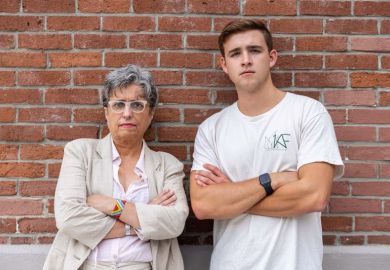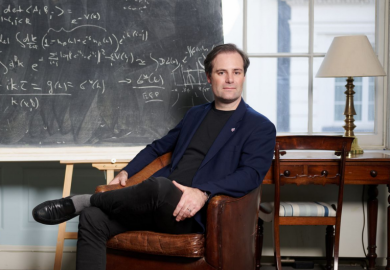When I was a child, I’d regularly get into arguments with my grandfather. So would others in my family. You felt as though you were treading on eggshells. If you expressed doubts about a proposition he made, he would lash out. You would be suspected of disloyalty or, worse, you might be ostracised. He would accuse you of being stupid, bigoted, or ridiculous. He divided people.
My late grandfather has been my mind’s unwelcome guest a lot lately, thanks to a debate among legal academics about the merits (and otherwise) of activist scholarship. I am with the sceptics. Many activist academics display a style of engagement reminiscent of my grandfather’s. I don’t recall learning much from arguments with my grandfather. All I gained was a thick skin, and a resolution not to behave like that if I could possibly help it.
Activist scholarship undermines the fundamental predicates of academia and creates distrust and division. I don’t care in which direction the particular activist barrow is being pushed – left, right, or another direction entirely.
Activism presumes certain knowledge is inherently true and allows no room for dissent. It adopts one side of a debate wholeheartedly, to the point of taking strong actions to support it. The corollary to this, often, is that anything said on the other side of the debate is ridiculous or positively evil. Hence, the opposing view cannot even be mentioned, other than to be derided. Some academics refuse to read material by their intellectual opponents.
Advocacy is different. As an advocate or barrister, you sometimes must argue a point with which you personally disagree. However, knowing that there’s another point of view makes your arguments better. Moreover, barristers owe an overarching ethical duty to the court – beyond their duty to the client – to bring to the judge’s attention any cases or laws that may conflict with their argument. Advocates generate trust by conceding that there are points to be made against them.
It is impossible to divest ourselves entirely of our views. I tell my classes, “I have views, and you’ll probably be able to see them.” I advocate for those views in my academic writing, in that I seek to persuade people that there are good reasons for them. However, I also tell my class, “I will not mark you down, and I will not penalise you if you have different views. I will reward you for a well-justified and coherent argument.”
Human society and experiences are diverse, and academic work should reflect this, to capture knowledge and truth. Diversity is not only reflected in personal characteristics such as ethnicity, religious belief or sexuality. It also involves different modes of thought and points of view. Universities should reflect varied points of view – not least because academic arguments, like arguments at trial, become stronger when authors engage in good faith with opposing views. A critique of your work from a different perspective may lead you to think of points you have not considered before.
A university that only allows for one viewpoint (or allows quibbles within a particular “school”, but no discussion of whether that mode of thought itself is correct) does not seek knowledge or truth. Particularly in the humanities and social sciences, few conservative voices remain, however. This means that certain propositions cease to be questioned: the academy becomes closed-minded and scholars who would gain from “pushback” against their views lose the opportunity.
Moreover, this ideological narrowing encourages any remaining conservative academics to leave and alienates conservative students, who feel unable to express their views without censure. If those students later come to positions of political power, they will show no hesitation in pulling funding from universities (I’ve heard several say they look forward to burning the academy to the ground).
The risk of cancellation does not only apply to conservatives, however. The academics “cancelled” by colleagues are often on the moderate left. Even they feel the need to hide their opinions and express public agreement with radical statements to avoid what a right-wing friend calls the “circular firing squad”. The risk is that those moderates follow conservatives out the door and a “purity spiral” ensues, where remaining members are expelled for being insufficiently dedicated to the cause. This pattern should be familiar to anyone who knows the fate of the Girondists after the French Revolution.
Of course, civil society is increasingly polarised, with both left- and the right-wing social media “mobs” piling on individuals they find offensive, inciting abuse, ostracism and even death threats. The answer is not to tip the balance so that conservatives predominate. Academics of all people should grasp that an echo chamber is not conducive to knowledge. This is not a road we should go down. Activist scholarship may drive us there regardless.
I do not want to be the academic with whom people agree simply because they fear being scorned or shut out or marked down. I want my colleagues and students to think for themselves, to come up with interesting and different points of view, to challenge me, and for us to learn from each other.
If we cannot do that in the academy, well…I begin to wonder what use it is.
Katy Barnett is a professor in the Melbourne Law School at the University of Melbourne.
Register to continue
Why register?
- Registration is free and only takes a moment
- Once registered, you can read 3 articles a month
- Sign up for our newsletter
Subscribe
Or subscribe for unlimited access to:
- Unlimited access to news, views, insights & reviews
- Digital editions
- Digital access to THE’s university and college rankings analysis
Already registered or a current subscriber?








